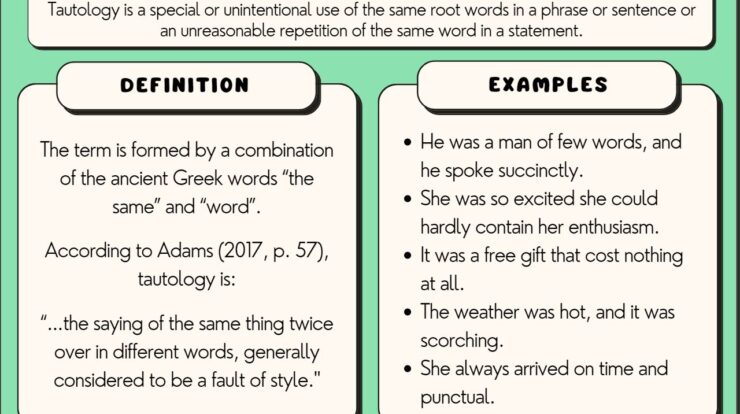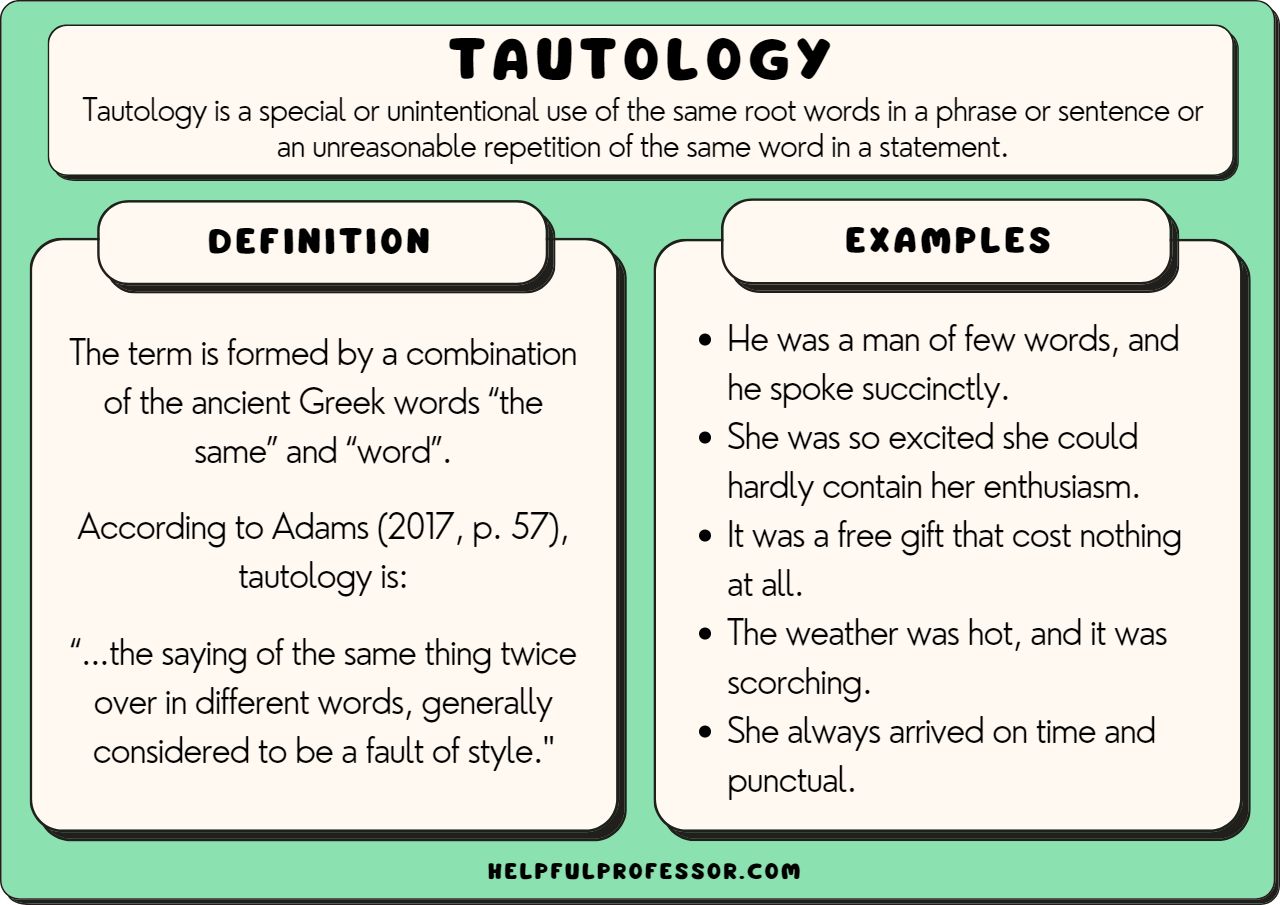
Tautological definition, a peculiar form of definition, emerges as a fascinating concept in the realm of language and communication. It presents a definition that essentially restates the term being defined, seemingly creating a loop of self-reference. Delving into the intricacies of tautological definitions, this exploration uncovers their unique characteristics, diverse types, and practical applications.
Tautological definitions stand out by virtue of their circular nature, where the definiendum (the term being defined) reappears within the definition itself. This self-referential aspect sets them apart from other types of definitions that aim to clarify and explicate.
Tautological Definition

A tautological definition is a statement that defines a term by restating it in different words or using a synonym. Tautological definitions are often used in dictionaries and encyclopedias, and they can be helpful for understanding the meaning of a word or concept.
Definition and Characteristics, Tautological definition
Tautological definitions are characterized by the following:
- They define a term by restating it in different words.
- They use a synonym to define the term.
- They are often used in dictionaries and encyclopedias.
- They can be helpful for understanding the meaning of a word or concept.
Types of Tautological Definitions
There are two main types of tautological definitions:
- Explicit tautologiesdefine a term by restating it in different words.
- Implicit tautologiesdefine a term by using a synonym.
For example, the following definition is an explicit tautology:
Synonym:A word or phrase that has the same meaning as another word or phrase.
The following definition is an implicit tautology:
Friendship:A relationship between two or more people who care about each other.
Advantages and Disadvantages of Tautological Definitions
Tautological definitions have both advantages and disadvantages:
Advantages:
- They are easy to understand.
- They can be helpful for understanding the meaning of a word or concept.
- They can be used in a variety of contexts.
Disadvantages:
- They can be circular.
- They can be ambiguous.
- They can be misleading.
Final Wrap-Up

In conclusion, tautological definitions, with their self-referential nature and specific uses, offer a unique perspective on defining terms. While they may not provide novel information, they serve valuable purposes in various fields, including logic, mathematics, and everyday communication. Understanding the concept of tautological definitions enhances our appreciation for the complexities and nuances of language and its ability to convey meaning.
Commonly Asked Questions
What is the primary characteristic of a tautological definition?
A tautological definition is distinguished by its circularity, where the term being defined appears within its own definition.
What are some examples of tautological definitions?
Examples include “a bachelor is an unmarried man” and “a square is a four-sided figure with equal sides and right angles.”
What are the advantages of using tautological definitions?
Tautological definitions offer simplicity, clarity, and ease of understanding, making them useful for introducing new concepts.
What are the limitations of tautological definitions?
They can be redundant and provide no new information, and they may not be suitable for complex or technical terms.





